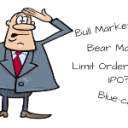Share buybacks have become hugely popular in recent years. By buying back their own shares and then cancelling them, companies can engineer an increase in earnings per share in excess of any increase in total profit.
In theory, the resulting increase in both earnings and earnings growth will support a higher share price and a higher price-to-earnings (P/E) rating.
If carried out correctly, share buybacks can represent an attractive investment opportunity for a business and its shareholders. But as I’ll explain, this is not always the case. Other motivations may drive some executives’ buyback decisions.
The sums of money committed to buybacks are often large and can exceed the cost of a company’s annual dividend. This means shareholders are swapping potential cash special dividends for the less certain benefits of a shrinking share count.
I think it’s worth considering more closely what buybacks mean for shareholders and how we can gauge whether they are likely to represent an attractive use of a company’s capital.
Dividend vs buybacks
A dividend is a cash payment that you or I will receive in our brokerage account. This payout reduces the book value of the company in line with the amount of cash spent, but shareholders are no poorer. We have our share of this cash and can do with it as we wish.
A dividend is truly a return of capital to shareholders. The same description is often applied to buybacks, but I think this is somewhat misleading.
When a company buys back its own shares, it expends cash, but shareholders do not receive it.
In theory, the benefits of the buyback will mean that the remaining shares become more valuable, both in terms of their market price and their intrinsic value. However, reality often falls far short of this rose-tinted ideal.
Consider drinks giant Diageo (LON:DGE), historically seen as a good stock for long-term investors.
Between June 2021 and June 2023, Diageo spent £3.7bn buying back 98.8m shares at a weighted average cost of 3,708p. Very roughly, that was about 160p per share, equivalent to a yield at the time of about 4.3%.
Shareholders could have received that cash, but they didn’t. Today, the company’s shares are trading over 35% lower, at 2,335p.
Diageo’s net debt has risen by around £2.7bn…










